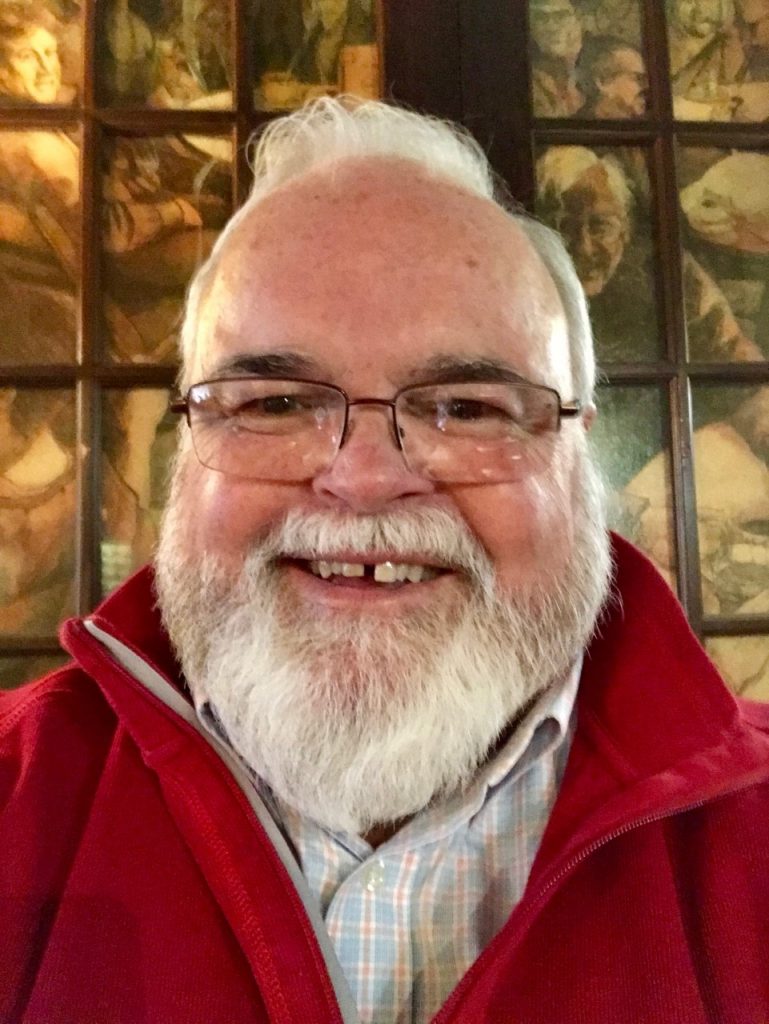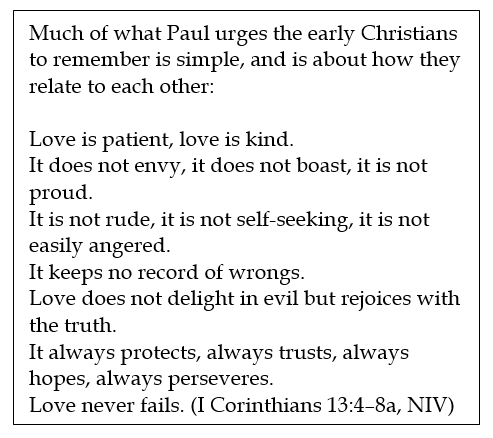
I am drawn to the apostle Paul’s letters. They are a window into his struggles with his own temperament and with the daily struggles of the nascent Christian church around the eastern Mediterranean. They make him believably human. Who among us hasn’t wondered whether what we’re doing is really working? Who hasn’t worried that the call to follow Christ isn’t always heard very clearly or embraced very fully, by ourselves or by others?
My idea of church has been shaped by Paul’s many journeys to “congregations” which were beset by uncertainty and confusion, and which often existed in inhospitable places. Yet he—and they—persevered. And in so doing, they remind us of how important having a connection to other believers in other places can be; we are encouraged by knowing that fellow Christians in distant places share our faith and understand our journeys.
With this in mind, I have for most of my life been involved in church at multiple levels. My experience this year as a Trinity delegate to the Diocesan Convention is the most recent of these forays beyond my home parish.
I especially appreciated the opening Eucharist at Grace Church, Sandusky. This year Bishop Hollingsworth’s sermon told of the life of our spiritual forbearer, James Theodore Holly. This remarkable man became the first black Bishop in the Episcopal Church, and the first Bishop of Haiti. Bishop Holly’s perseverance in 1861, while leading a group of just over 100 faithful as they struggled to overcome disease and privations, brought to mind Paul’s often perilous journeys. Nearly half of those who journeyed to Haiti with Bishop Holly perished from disease. Yet their survivors persevered and eventually, at the General Convention of 1874, Holly was ordained and consecrated the First Bishop of Haiti.

Gathering with several hundred Episcopalians from beyond my parish makes church more expansive for me. Pondering lives of dedication and faithfulness, whether through a reading of Paul’s letters or by learning of the ministry of people such as Bishop Holly, offers quiet and compelling inspiration to me. Being reminded that church is not just a place or an organization, but is a community of believers that exists over time and space reassures me that I have a faith home here at Trinity and everywhere that people of faith gather.
